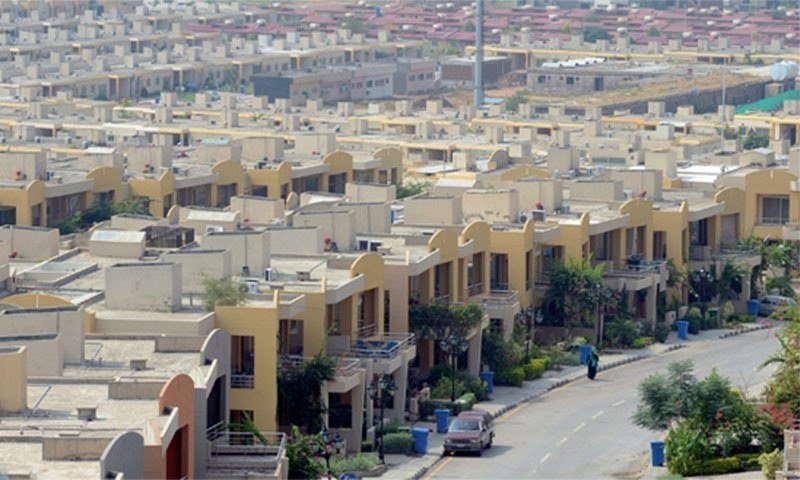The Federal Budget 19-20 reveals the government's plans regarding the regulation of the real estate sector as a vehicle for money laundering.
In a sub-head dealing with taxation of the real estate sector, the PTI government describes real estate as "one of the biggest sources of money laundering and is used as a parking lot for untaxed as well as ill-gotten money."
"In view of this, a wide range of steps have been taken to restructure the taxation of this sector. The various steps being taken are as under:
(i) At present, the Board has issued valuation tables of immovable properties in 21 major cities wherein such properties are valued at a value higher than the DC rates. The purchasers are also required to pay 3pc tax on the difference between the DC value and FBR value of property to explain the source of investment to the extent of differential between FBR value and DC value.
The rates notified by the Board are still considerably lower than actual market value. It is therefore intended that FBR rates of immovable properties would be taken closer to or about 85pc of actual market value. In addition, 3pc tax for not explaining the source of investment is being withdrawn.
(ii) As the increase in FBR values of immovable property is going to increase the incidence of tax on genuine buyers and sellers, the rate of withholding tax on purchase of immovable property is being reduced from 2pc to 1pc.
(iii) At present, withholding tax on purchase of property is attracted only if the value of property is more than Rs4 million. The threshold of Rs4 million is being abolished and withholding tax on purchase is to be collected irrespective of the value of property.
(iv) At present, there is no withholding tax on sale of property if the property is held for a period of more than three years. Since capital gain is to be taxed under normal tax regime even beyond the period of three years, withholding tax on sale of property would be collected where the holding period is up to five years.
(v) Presently the law imposes restriction on registration or transfer of property having fair market value exceeding Rs5 million in the name of a non-filer. The aforesaid restriction placed on purchase of immovable property [by non-filers] is being withdrawn."
Capital gains on immoveable properties
At present capital gain on immovable properties is subject to separate taxation on the basis of holding period of property.
In order to check tax evasion and to ensure equal taxation of all incomes, income from capital gains is being brought under the normal tax regime and taxed at normal rates.
However, to account for the time value of money, the gain on open plots would be reduced on the basis of net present value so that where the holding period is up to one year, the full gain will be taxed.
Where the holding period is between one to ten years, 75pc of the gain shall be taxed.
There will be no tax in case the holding period is more than ten years.
Similarly, gain on sale of constructed property is to be fully taxed where the holding period is up to one year and 75pc of the gain will be taxed where the holding period is between one to five years.
Where the holding period is above five years no gains shall be taxed.
Assets must be purchased through banking channels
Persons purchasing immovable property of fair market value greater than Rs5 million and Rs1 million or more in the case of any other asset, will now be required to make payment for the said purchase through a crossed banking instrument so that transaction can be clearly identified from one bank account to another.
In case of non-compliance, the deductions in respect of depreciation and amortization in respect of such assets shall not be allowed.
Further, the amount of purchase shall not be treated as cost for calculation of any gain on sale of such asset.
A penalty at the rate of 5pc of FBR value of the asset is being be imposed for violation of this requirement.














































